2025
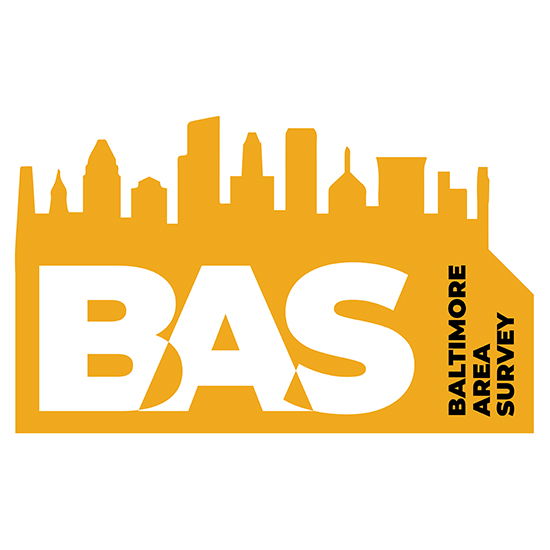
Data Report: SNAP Benefits and Food Insecurity in the Baltimore Area
November 11, 2025
In this data report, we examine the relationship between SNAP benefit receipt and food insecurity in the Baltimore-area looking at households with children and jurisdictional differences using data from the 2024 Baltimore Area Survey.
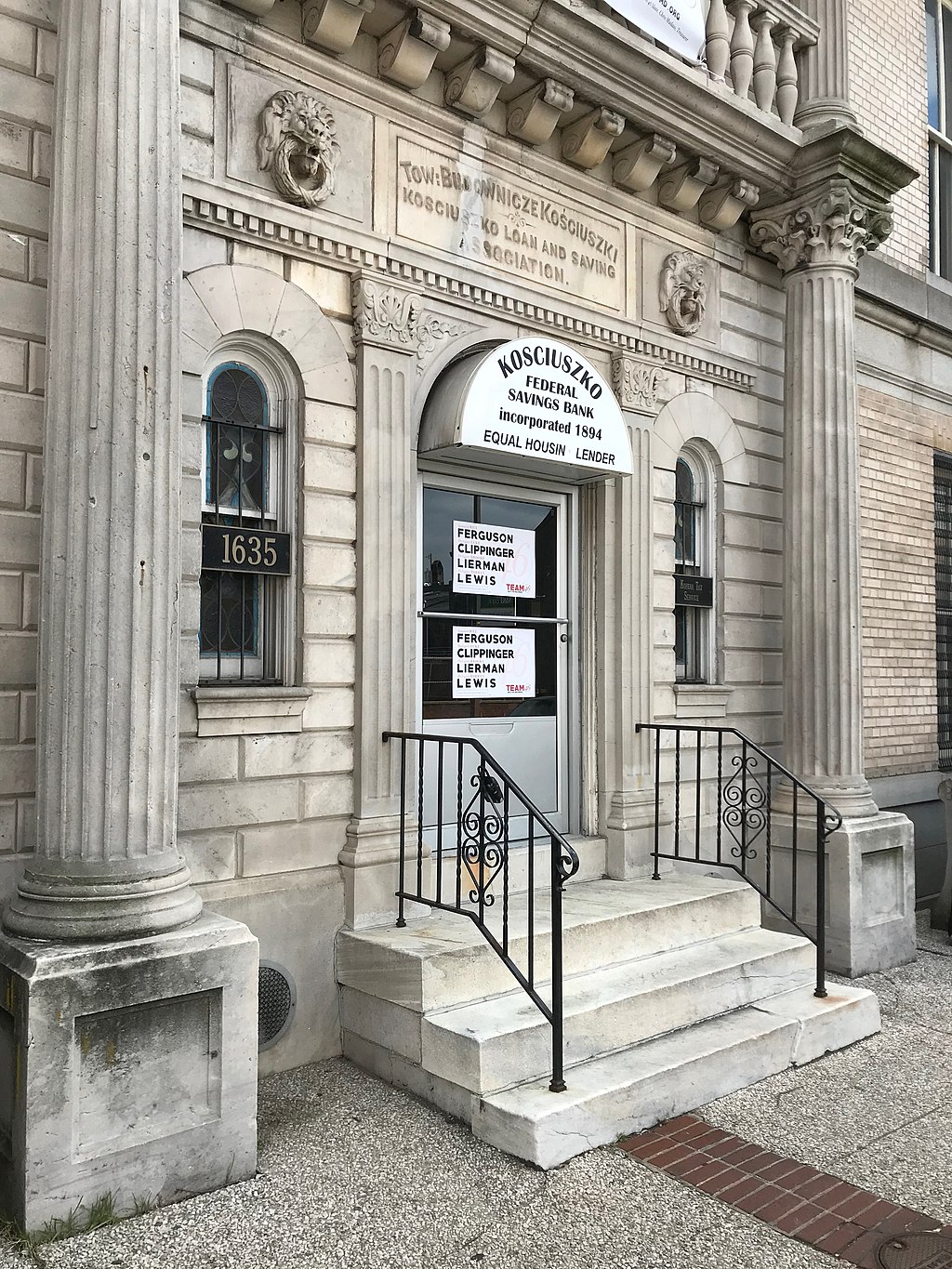
Small Business Bank Lending in Baltimore’s Black Butterfly and White L, 2013-2023
August 6, 2025
This study examines community level disparities in lending across Baltimore City in recent years and the racialized geography of banks’ small business lending in Baltimore by looking over a decade of the most recent publicly available data from 2013 to 2023.

Opportunity or Necessity? Perceptions of Entrepreneurship in Baltimore
April 29, 2025
In this research brief, we examine who identifies as an entrepreneur in Baltimore, perceptions of entrepreneurial opportunities in the Baltimore area, and whether residents think engaging in entrepreneurship or working for an established business is a better path to financial success using data from the 2023 Baltimore Area Survey.

Long Term Impacts of the Key Bridge Collapse on Baltimore-area Residents Daily Lives
March 25, 2025
In this research brief, we examine longer-term impacts of the collapse on the daily lives of Baltimore-area residents using data from the 2024 Baltimore Area Survey, approximately six to seven months after the collapse.

Expectations of Future Climate Change Harm and Costs in the Baltimore Area
March 6, 2025
Our new report, based on data from the 2024 Baltimore Area Survey, examines the extent to which Baltimore-area residents are concerned about the future impacts of climate change and how those concerns differ by race, income, age, and geography.

A Portrait of Baltimore: Results of the 2024 Baltimore Area Survey
January 23, 2025
The 2024 Baltimore Area Survey (BAS) is an annual survey to measure various aspects of life among residents living in the Baltimore region. The BAS 2024 asked 163 questions of a statistically representative sample of residents who live in Baltimore City and Baltimore County. This, our second “Portrait of Baltimore” report, summarizes initial findings from the BAS 2024.
2024

Community Exposure to Drug Overdose and Addiction in Baltimore
September 17, 2024
Our new report, based on data from the 2023 Baltimore Area Survey, offers deeper understanding of the families touched by Baltimore’s growing drug addiction epidemic. Findings show the poorest and least educated are the most affected by fatal overdoses.
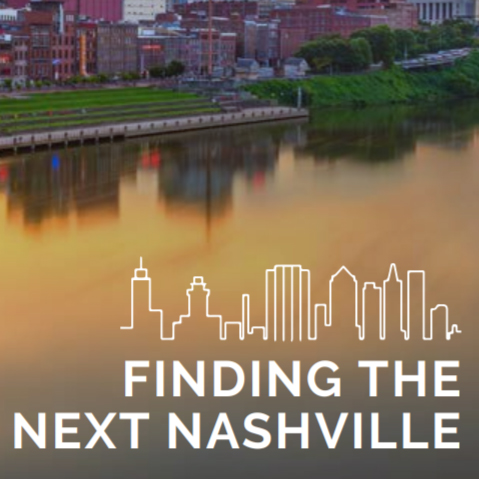
Finding the Next Nashville: Importance of Good Governance
September 1, 2024
We examine the role of governance and policymaking on key factors that affect city vibrancy, which we generally capture by looking at population growth, public schools, public safety, tax policies, fiscal management, and leadership quality in shaping the economic landscape of cities.
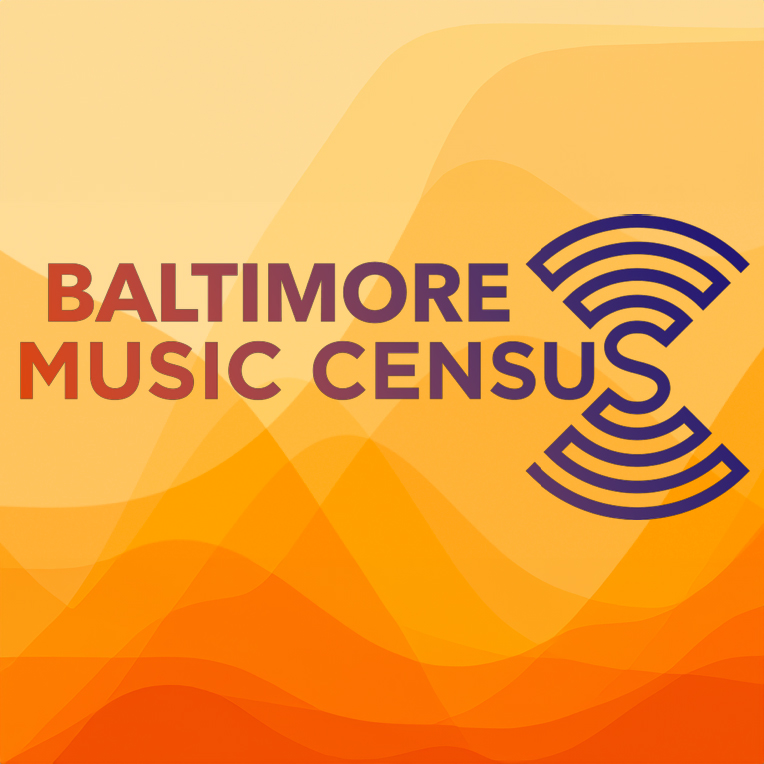
February 19, 2024
The Baltimore Music Census is a survey designed to capture key information about the local music scene. The goal of this initiative is to support local musicians, educators, venues, promoters, industry personnel, and non-profits.
2023

A Portrait of Baltimore: Results of the 2023 Baltimore Area Survey
December 5, 2023
Co-designed by Johns Hopkins researchers and community leaders, the inaugural Baltimore Area Survey attempts to address topics important to people who live there. The survey of 1,352 city and county residents focuses on issues central to how people feel about and experience living in the area.
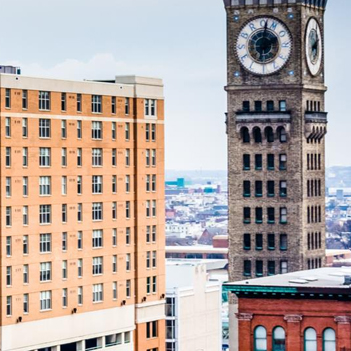
May 30, 2023
The 21st Century Cities Initiative and the National Bankers Association examined the state of the nation’s 147 Minority Depository Institutions (MDI) and explored how the MDI industry has changed since 2010.
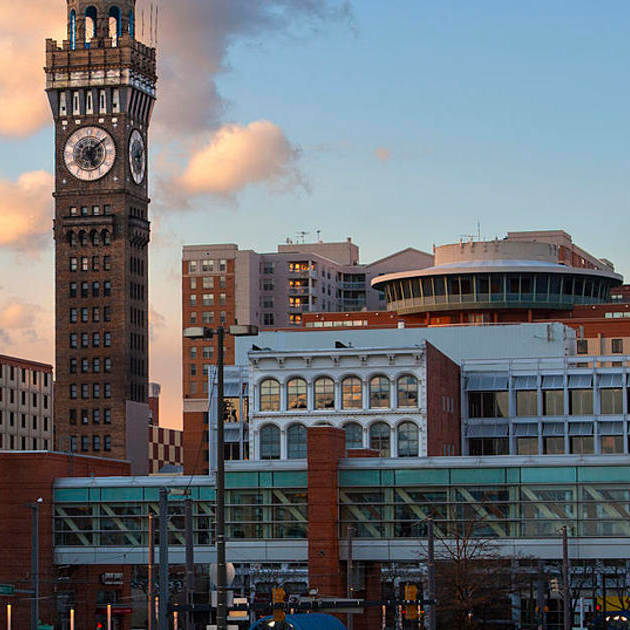
Measuring Diversity in Baltimore’s Startup Ecosystem
March 28, 2023
In this report, we highlight Baltimore City’s comparative advantages for becoming an Equitech city, address the business case for diversity in tech, and share the results of our survey, including comparisons of diversity in Baltimore startups to Baltimore City as a whole and to national estimates of diversity.
2022
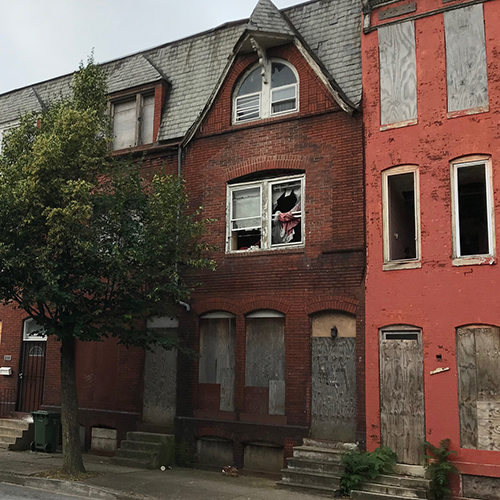
The Costs of Baltimore’s Vacant Housing
August 31, 2022
Interest in tackling Baltimore’s vacant property problems at scale is manifesting itself in a number of different proposals. Our aim is to provide a strong factual backdrop for assessing various proposals and developing policy recommendations.

Finding the Next Nashville: Migration of the Young, Educated Workforce
July 28, 2022
In this report, we look at the geography of where young and college educated workers make up the largest share of adults in U.S. metropolitan areas in 2019, and examine how that has changed since 2010. Did metro areas that already had large numbers of young, educated people gain the most?
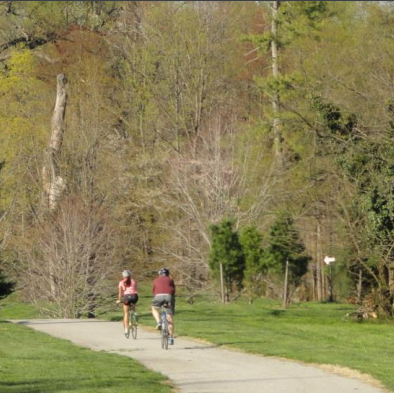
Strategies to Preserve and Build Affordable Housing Near Green Amenities and Urban Trails
March 22, 2022
In this brief, we provide a review of the academic literature on strategies to preserve and build affordable housing with respect to green amenities and urban trails. We look at a variety of strategies.
2021
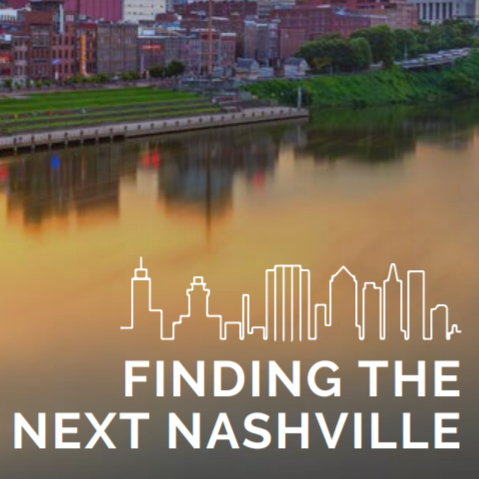
Finding the Next Nashville: Job Growth and Job Sector Diversity in Cities
November 8, 2021
In this report, we focus on job sector diversity in metropolitan areas as an important factor in economic growth and resilience. We examine the relationship between job sector diversity and job growth in the 150 largest metropolitan areas in the U.S. from 2000 to 2019.
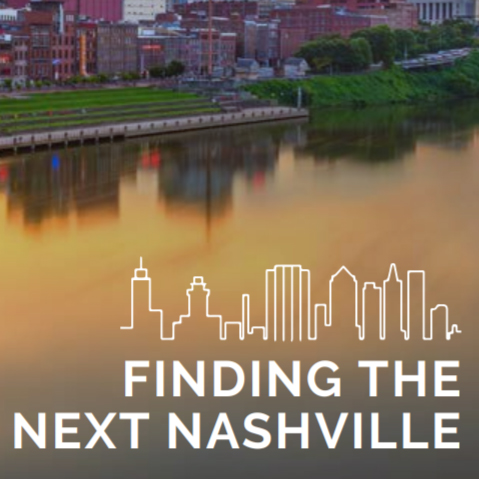
Finding the Next Nashville: The Local Determinants of Quality of Life and How They Attract Jobs and Residents
November 4, 2021
In this report, we examine the relationship between the growth of large metropolitan areas between 2010 and 2019 and local determinants, including salary, adjusted cost of living, access to job markets, commute times, weather, and much more.
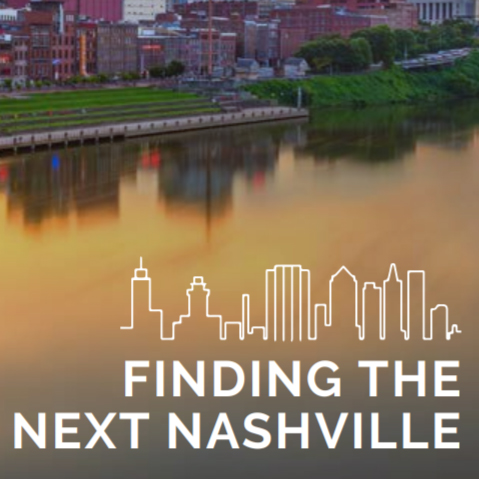
Finding the Next Nashville: Understanding Factors that Cause Cities and Regions to Achieve Above Average Growth
January 16, 2021
In this report, we explore five factors that may have contributed to the city’s success: good governance, regional competition, diversified economy, low cost of living and high wages, and the ability to attract young, educated people.
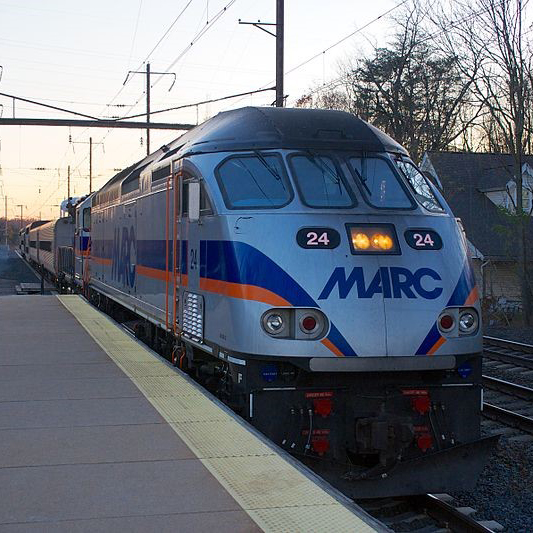
Investing in High-Speed Rail to Washington, DC, to Boost Baltimore’s Economy
February 1, 2021
In this report, we examine the current MARC service from Baltimore to D.C. and what an express train could look like. We also explore whether residents of D.C. could be induced to live in Baltimore through significant housing cost savings.
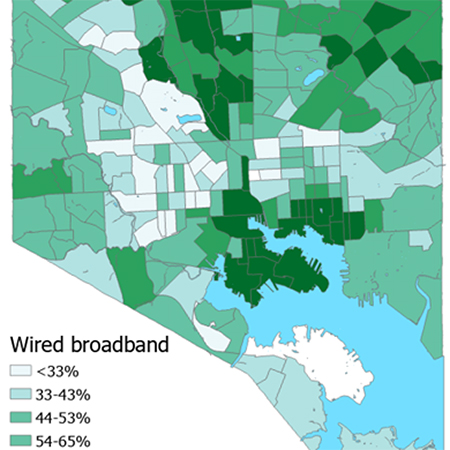
Achieving Digital Equity in Baltimore
January 23, 2021
Too often, solutions to achieve digital equity have been sought in silos when what we need is a broad solution that will serve the whole city. The city needs a holistic plan to address digital equity that reaches households, the young and elderly, and small businesses that can drive economic growth in the city.
2020
The Local Economic Impact of Flood-Resilient Infrastructure Projects
Evaluating Voluntary and Mandated Social Distancing Policies on COVID-19
2019
Public Sector Pay Inequality Dynamics in Baltimore, Boston, and New York City
Alternative Models of Housing Development Programs in Buenos Aires, Argentina
The Local Impact of Bank Mergers on Small Business Lending: A Baltimore Example
2018: The Year of the Ballot Measure?
2018
Investing in Opportunity: Addressing the Root Causes of Civil Unrest in Baltimore
Financing Baltimore’s Growth: Venture Capital Support for Small Companies
Financing Baltimore’s Growth: Strengthening Lending to Small Businesses
Placelinking: An Emergent Approach to Improving Economic Mobility Outcomes
Opportunity Zones Are Knocking: Will Baltimore Be Prepared?
2017
Financing Baltimore’s Growth: Measuring Small Companies’ Access to Capital
Private Sector Efforts to Support Economic Inclusion in Cities
2016
When States Interfere with City-Level Innovation: Preemption and Implications for Cities

